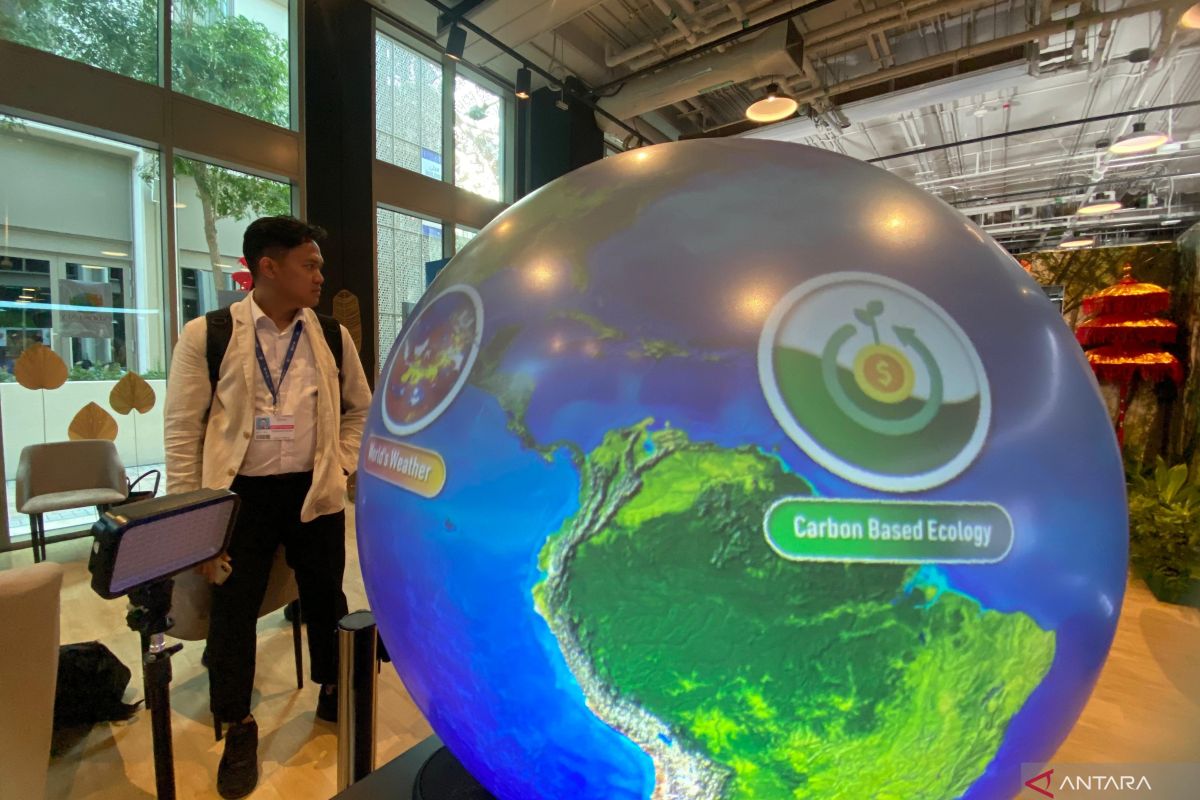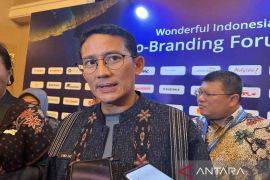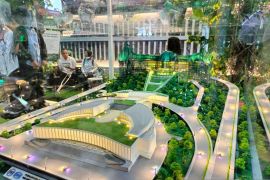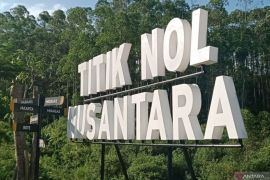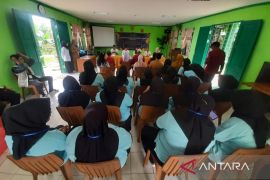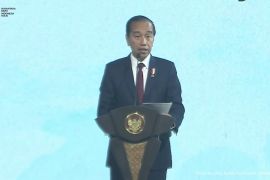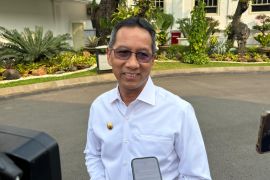The issuance of the Nusantara Regionally and Locally Determined Contribution (RLDC) document on the sidelines of the 28th meeting of the Conference of the Parties to the UNFCCC (COP28) in Dubai, the UAE, on December 3, 2023, marked the readiness of the Nusantara Capital Authority (OIKN) to realize Indonesia's commitment and contribution to dealing with climate change.
"We want to see this city as a future city that is green, smart, resilient, and inclusive. We want action on climate change to be embedded, meaning that it is integrated into our action plan going forward," OIKN Head Bambang Susantono told ANTARA while attending the COP28 in Dubai in early December 2023.
The RLDC document is regional in nature and valid in the Nusantara region that covers an area of 252 thousand hectares. It covers the target to reduce emissions to -1.1 million tons of carbon dioxide (MtCO2) in 2045 in the first scenario. Meanwhile, in the second scenario, there is a more ambitious target, namely reducing emissions to -1.5 MtCO2 in the same period.
The steps that are taken cover five sectors, namely forestry and other land use (FOLU), energy, industry, waste management, and agriculture.
For instance, in the FOLU sector specifically, the OIKN aims to conduct forest restoration in 45 percent of the total land for the first scenario and 47 percent for the second scenario. Overall, the authority targets forests to constitute 65 percent of Nusantara's land.
The new capital is also designed to have 100-percent renewable electricity sources by 2030, utilize more efficient cement by using cement additives, reduce waste, and apply sustainable agricultural practices by 2045.
In terms of electricity, the development process of a solar power plant, with a total capacity of 50 megawatts, has begun. Furthermore, Nusantara is targeted to be a city where only electric vehicles would ply on the roads by 2040.
These targets are not easy to achieve, considering the condition of the Nusantara area, which was earlier a monoculture industrial forest area and a former mining area whose ecosystem required massive environmental restoration. In the RLDC document, there is a target to restore a total of 83 thousand hectares of land.
Reforestation efforts have begun with the construction of a nursery in Mentawir, North Penajam Paser District, East Kalimantan, which can produce 15-20 million trees per year to support reforestation efforts.
There are also sustainable projects in Nusantara that will be carried out by cooperating with private parties.
In December 2023, the third phase of the groundbreaking of the Nusantara construction will take place. It covers 10 projects, with an investment value of around Rp10 trillion (around US$642.13 million).
Related news: OIKN to launch Nusantara RLDC document at COP28 Dubai Nov-end
Collaboration
As the first city in Indonesia to have a roadmap to reduce carbon emissions in its area, Nusantara cannot work alone to achieve its goal of becoming a green city. Not only from the private sector, communities at the grassroots level also have an important role in realizing the plans in the RLDC document.
Deputy for Environment and Natural Resources at the OIKN Myrna Safitri emphasized that the RLDC is inclusive in nature, where its implementation is not only carried out by OIKN but also by all parties that conduct activities in Nusantara. It also includes the indigenous people living in the area and new residents who will live there.
"What is really important when we talk about RLDC is not just the presence of policies, not just the presence of programs because this is a matter of mindset and lifestyle," she noted on the sidelines of the COP28 event.
Several targets in the RLDC require collaboration with the community, including the target on waste management, with a target of recycling 60 percent of waste using a circular economy approach, namely reduce, reuse, and recycle (3R), and 40 percent being reprocessed into products.
Likewise, collaboration is also needed in the agriculture sector, which will apply sustainable practices, such as the use of biochar, which is a soil amendment made from organic waste. Regenerative agriculture and agroforestry practices will also be carried out in several degraded forest areas.
To this end, a permanent change in mindset and lifestyle is deemed necessary. One of the approaches to achieve this is the dissemination of information by religious and community leaders.
Chairman of the Environmental Protection Agency (LPLH) of the Indonesian Ulema Council (MUI) Hayu Prabowo underscored the need to disseminate information on the issue of climate crisis and deforestation.
Through places of worship, religious leaders can continue to promote the message of protecting the environment in the country, including specifically encouraging better conditions in Nusantara.
Support also comes from the international community, including from the Asian Development Bank (ADB), which supports Nusantara to become a city with zero carbon emissions.
Director General of the Southeast Asia Department of the ADB, Winfried Wicklein, highlighted the importance of the role of subnational governments, such as city governments, to achieve national climate targets, especially to create climate-resilient communities.
His side supports the planning of Nusantara to become a green city and the mobilization of the financial sector, especially from private parties, and helps to identify opportunities for collaboration between the government and the private sector.
Those various forms of support and collaboration from the community at the grassroots level, various religious institutions, the private sector, and the international community can help to realize the commitment to make Nusantara a zero-carbon city for all.
Related news: IKN aims to become carbon neutral city by 2045
Related news: IKN development with Forest City concept to mitigate climate change
Editor: Yuni Arisandy Sinaga
Copyright © ANTARA 2023
